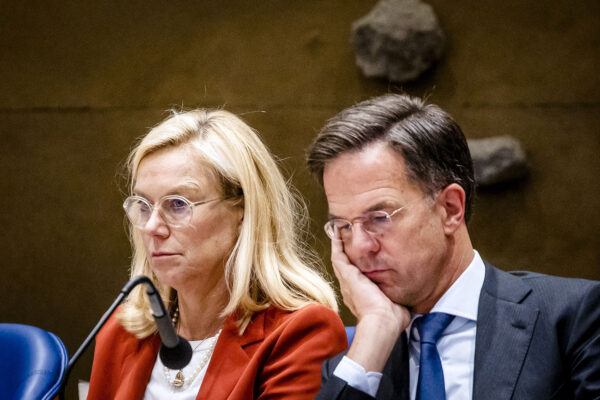
The outcome of provincial elections in the Netherlands threatens to divide Prime Minister Mark Rutte’s ruling coalition.
The Christian Democratic Appeal (CDA), the third party in Rutte’s four-party government, lost a third of its voters to the populist Farmer-Citizen Movement (BBB), which placed first. Many told exit pollsters they switched because of the CDA’s support for reductions in farming.
Pieter Heerma, the CDA group leader in parliament, told reporters the election had created a “new political reality.” Party leader, and foreign minister, Wopke Hoekstra added that the government’s farm policy would need to be reassessed.
But the left-liberal D66, which also lost seats but to more left-wing parties, insists that cuts in ammonia pollution must be made by 2030. “We don’t suddenly believe something different a week after the election than we did a week before the election,” group leader Jan Paternotte explained.
Rutte’s own party (of which I am a member) is split. Its youth wing shares the view of D66. So do pro-business liberals, egged on by the Dutch employers’ association, which has advised against delay. Conservatives are wary of expropriating farmers for the sake of environmental protection.
BBB leader Caroline van der Plas expects the government — Rutte’s fourth since 2010 — will collapse, which would trigger early elections that her party could win.
Nitrogen referendum
The provincial elections, held on the same day as water board elections in the European Netherlands and island council elections in the Caribbean Netherlands, were seen as a referendum on Rutte’s nitrogen policy.
The Dutch emit four times more nitrogen than other Europeans. Farming causes the largest share, about 40 percent, in the form of ammonia, the largest share of which in turn emanates from the manure of 1.6 million cows that provide the milk used to make the country’s famed Edam and Gouda cheeses. The Netherlands is the fifth-largest dairy exporter in the world.
Across the Netherlands, but especially in sensitive grasslands and marshes, nitrogen pollution acidifies the soil and groundwater. Some plants thrive unnaturally. Others wither, driving insects away, which in turn deprives birds of food. The Netherlands has lost 70 percent of its bugs since the EU introduced standards for environmental protection in the 1990s. In waterways, nitrogen spurs algal growth, sucking oxygen from the water. Fish suffocate.
Rutte’s government has called for proportionate cuts in emissions from agriculture, industry and transportion to achieve 50 percent reduction by 2030. One in three farmers, around 15,000, would either need to quit, downsize, relocate to a less nitrogen-sensitive area or achieve reductions by changing the way they farm. For example, by capturing and recycling ammonia emissions. Or by switching to a combination of ecological farming, which is less polluting, and government-funded land management.
The national government has made €25 billion available to subsidize all four options. Provincial governments, which are responsible for spatial planning, would need to decide on a farm-by-farm basis which can stay and which need to go.
Provincial deputies, and representatives of Dutch islands in the Caribbean, elect a new Senate in May, which has yet to approve the reforms.
BBB takes votes from Christian and far right
The BBB placed first with 19 percent support nationwide, giving it 137 out of 572 seats in provincial councils. In the rural provinces of Drenthe and Overijssel, its support exceeded 30 percent.
The BBB gained at the expense of the far-right Forum for Democracy, which fell from 15 to 3 percent, and the CDA, which fell from 11 to 7 percent.
As recently as 2007, the CDA was the largest party in provincial elections with 25 percent support.
VVD may be needed everywhere
Rutte’s liberal VVD placed second with 11 percent support overall and 13 to 14 percent in the urban provinces of Holland and North Brabant. That is down from 14 percent in the last provincial election and 22 percent in the last general election.
The party is still needed for a majority in probably all twelve provinces. More right-wing parties don’t have a majority of their own. D66 has ruled out coalitions with the BBB. Coalitions of Christian and left-wing parties, including the far-left Socialists and animal rights party, are theoretically possible but unrealistic.
The risk for Rutte is that provincial deals with the BBB will come at the expense of the support of the Labor Party and Greens in the Senate. They have so far backed his environmental policies. Like D66, the left-wing parties insist on the 2030 deadline and would start expropriating farmers as soon as this year.
